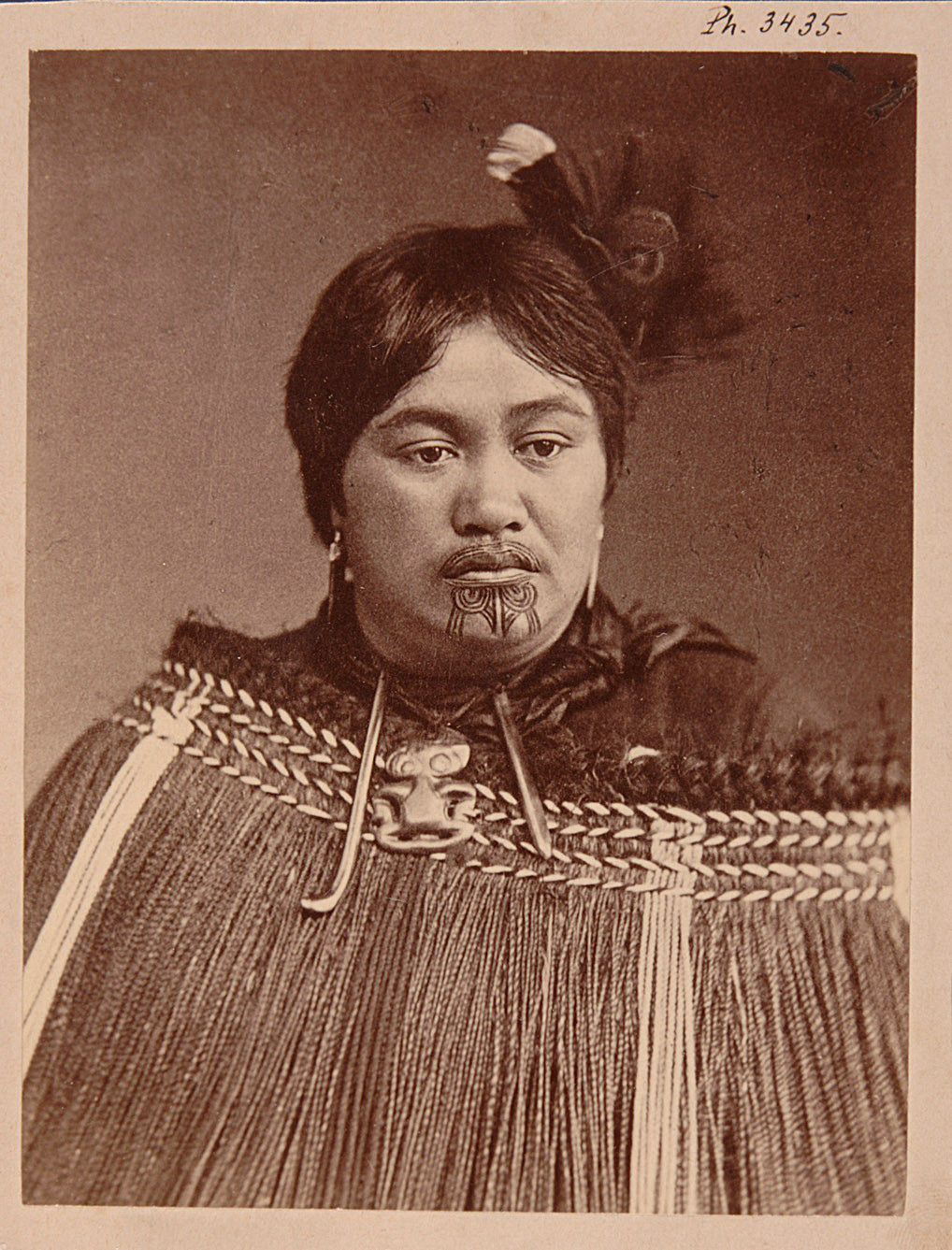
Harieta pongowhitiao, chief's wife, here dressed in an itau. Around her neck she wears a haitiki (talisman), a figure made of nephrite, furthermore she wears two tara earrings, which testify the high rank. Taken in New Zealand - North Island. (Reischek Collection). Vienna World Museum, photo 3.435
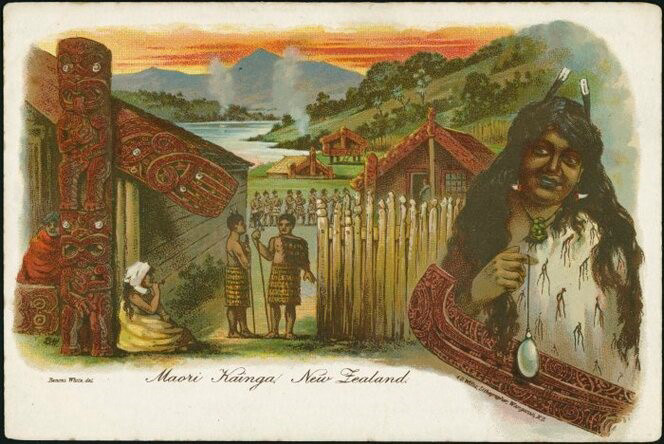
Postcard of a traditional Maori village Illustrated by Benoni White and published by A. D. Willis in 1902.
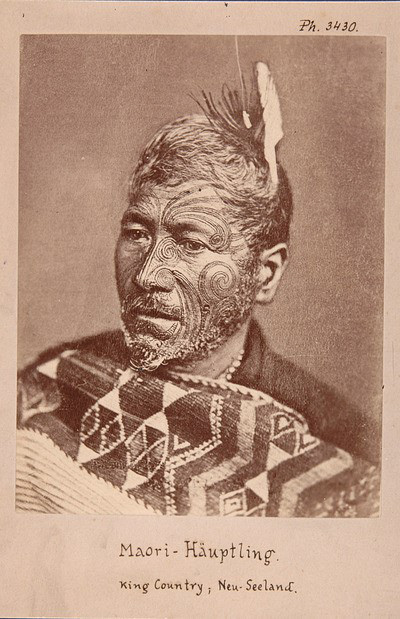
Maori chief Hati Wira Takahi with a traditional tattoo, a moko. (Reischek Collection). Vienna World Museum, photo 3.430
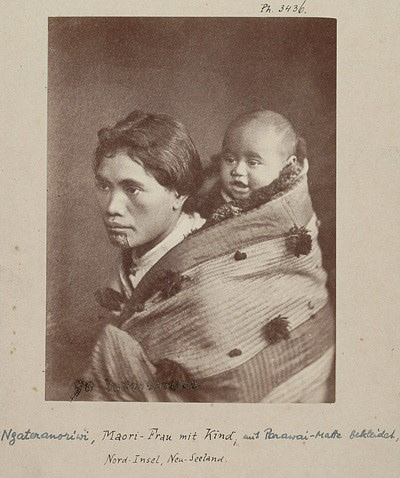
Ngateranoriwi, Maori woman with her child. She is dressed in a parawai and has a tattoo only on her chin. (Reischek Collection). Vienna World Museum, photo 3.436
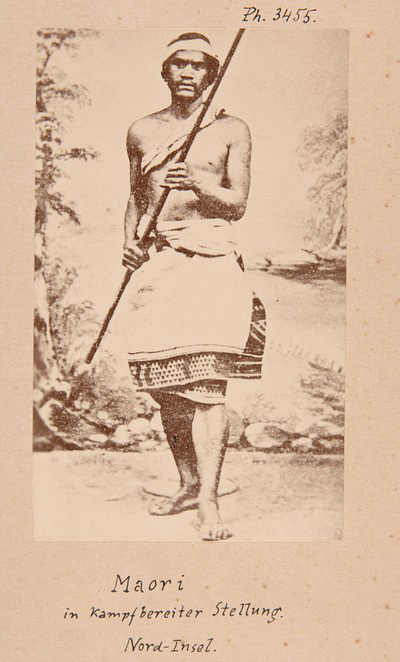
Maori, dressed in a kaitaka. This photo was taken in Thames, North Island - New Zealand. (Reischek Collection). Vienna World Museum, photo 3.455

Meeting house (runanga) in Ohinemutu, North Island - New Zealand. (Reischek Collection). Vienna World Museum, photo 3.396

Maori village (kainga) Utapu, King Country. (Collection Andreas Reischek). Vienna World Museum, photo 3.438
The term "Maori" originated in the 1850s, when Europeans had gained a foothold in New Zealand and the country was divided up. Maori meant "normal" or "ordinary", a "tangata Maori" basically simply referred to a normal person. Polynesian New Zealanders referred to themselves as members of a hapu or iwi, a group into which they were born. They had their own names with the prefix ngati (descendant of). Ancestry and family determined where they lived, who they married, and when and where the groups fought. These shaped their identity. A Maori man's ethnic group affiliation, role, and social position were evident in the detailed facial tattoos. Women wore tattoos especially on their chins. Families lived in villages that could contain up to 500 people and were located near water and natural or cultivated resources. Sometimes the settlements were built for protection like a fortress with ditches and ramparts, or near a hill.
The Maori had significant mythologies for them of rangi, the sky father, and papa, the earth mother, which they shared with other Polynesians of the Pacific area. These legends were passed down orally. In their imaginations, everything in life was connected. Historian Michael King (1986: 42) writes:
“The whole life was bound up in a unified vision in which every aspect of living was related to every other: art, religion, war, food gathering, love-making, death – all were an integrated part of a single fabric. And the universal acceptance of concepts such as tapu (sacredness or prohibiton), mana (spiritual power), prestige), mauri (life force), wairua (spirit), hara (faults), utu (satisfaction) and a belief in makutu (sorcery) regulated these aspects of life.”
When necessary, different Maori groups joined together for foraging or warfare under an ariki (superior chief). Basically, however, they were in strong competition with each other. The men were known as good warriors, which was also recognized and respected by the Europeans. Through the contact with the Europeans, the life of the Maori changed greatly. Their ideas and ways of life were influenced by those of the European colonizers.Today, Maori are increasingly aware of their cultural heritage. They are fighting for cultural and legal recognition, as well as reparations for colonial oppression. They also want to revive their cultural traditions.
